Sentinel Surveillance of SARS-CoV-2 in Wastewater is Here to Stay
Summary
The ongoing COVID-19 global pandemic is far from being controlled and it is already a public health emergency of international concern officially declared by the World Health Organization.
Despite COVID-19 is a respiratory disease, the prolonged shedding of large amounts of coronavirus genomes in the feces, that ultimately reach wastewater, makes SARS-CoV-2 surveillance in sewage a sensitive tool to monitor the spread of the virus among the population.
Current procedures employed for SARS-CoV-2 water-based epidemiology are diverse and demand harmonization, as a step forward towards the development of standardized methodologies for sampling, testing methods, data reporting/analytics and public health interpretation.
Chaired by:
Prof. Albert Bosch, PhD
Principal Investigator
Enteric Virus Laboratory, Universitat de Barcelona
Speakers
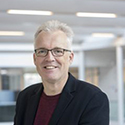
Prof. Gertjan Medema, PhD
Principal Microbiologist
KWR Water Research Institute
Prof. Gertjan Medema (M) is principal microbiologist at KWR since 1996. His main area of expertise is detection methods, transmission, risk assessment and epidemiology of waterborne pathogens. He initiated research on sewage surveillance of SARS-CoV-2. He is part-time chair on Water & Health at Delft University of Technology (Sanitary Engineering) since 2009 and Visiting Hannah Professor on Water & Health at Michigan State University since 2018. He has coordinated the joint research program of the Netherlands water utilities. He is director of KWR’s WHO collaborating centre on Water Quality & Health and advisor to the WHO on waterborne pathogens and QMRA since 1991 and of EU DG Environment on water reuse guidelines and drinking water guidelines.
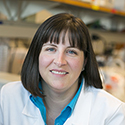
Amy E Kirby, PhD, MPH
Environmental Microbiologist in the Waterborne Disease Prevention Branch
Centers for Disease Control and Prevention
Dr. Amy Kirby is an Environmental Microbiologist in the Waterborne Disease Prevention Branch at the Centers for Disease Control and Prevention (CDC). She has a Bachelor’s of Science in Agriculture (BSA, major: Microbiology) from the University of Georgia, a PhD in Microbiology from the University of Buffalo, SUNY, and a Master’s of Public Health in Epidemiology from Emory University. At CDC, Dr. Kirby is interested in leveraging environmental microbiology methods to measure pathogens, antibiotic resistance genes, and other health indicators in natural and man-made water systems. This data can be used to estimate health risks from environmental exposures, as well as measures of the health of the surrounding communities. Since February 2020, she has been working on the COVID-19 response as part of the Water, Sanitation, and Hygiene team. As part of that team, she led the development and implementation of the National Wastewater Surveillance System (NWSS).
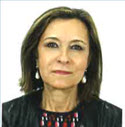
Covadonga Caballo Diéguez, PhD
Deputy Director for Environmental and Occupational Health
General Directorate of Public Health of the Ministry of Health
Covadonga Caballo Diéguez is a Doctor in Biology, specializing in Toxicology. Initially she carried out her activities at the Carlos III Health Institute, in the Toxicology Area of the National Food and Nutrition Center, participating in different research projects. Since 1992 she has worked in the General Sub-Directorate of Environmental and Occupational Health, in the General Directorate of Public Health of the Ministry of Health. She has participated as an expert in Toxicology in different working groups within the European Union, preparing and writing Technical Guides for the risk assessment of chemical products. She is the representative of the Spanish State in International Organizations: European Commission (Member of different Permanent Committees). She is currently the Deputy Director for Environmental and Occupational Health in the General Directorate of Public Health of the Ministry of Health, where, among other duties, she carries out the functions of evaluation, prevention and control of the effects of environmental factors on human health.
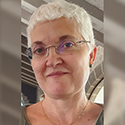
Prof. Rosa María Pintó, PhD
Full Professor of Microbiology
University of Barcelona
Rosa M. Pinto obtained her PhD in Biology in 1990 at the University of Barcelona on the characterization of the viral erythrocytic infection of sea bass. During the period 1991-1992 she performed a post-doctoral stage at the Institute of Virology of the National Environmental Research Center in Oxford, UK, at the beginning of the use of the baculovirus expression system to produce VLPs. Presently she is Full Professor at the University of Barcelona. Over the last twenty years she has devoted her research to the molecular biology of enteric viruses. Her final goal is the application of the generated basic results to the design of immunogens and to the development of diagnostic molecular procedures. This expertise has led her to publish over 120 peer-reviewed articles. In the last months, she has been involved in the wastewater based epidemiology of the SARS-CoV-2.
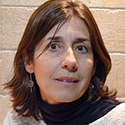
Gloria Sánchez, PhD
Tenured Scientist
Institute of Agrochemistry and 7 Food Technology, IATA-CSIC
Dr. Gloria Sánchez is currently a tenured scientist at IATA-CSIC. Her research is focused on developing molecular methods for human enteric virus detection in food and water, and evaluating the effectiveness of food processing on human enteric viruses. In the last years, her team has been actively involved in the development of real-time PCR methods combined with viability dyes for the selective detection of viable/infectious waterborne pathogens and the application of next-generation sequencing and bioinformatics for virus characterization in food and water samples. Since the beginning of the COVID-19 pandemics, her team has intensively worked on implementing methodologies for SARS-CoV-2 detection in water and surfaces. She has actively been involved in several national and international committees, and recently she was appointed as member of the advisory committee on COVID-19 of the Valencian government.